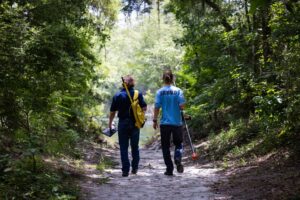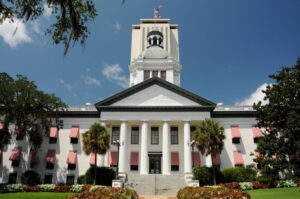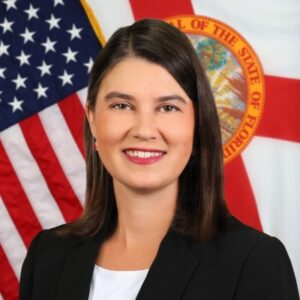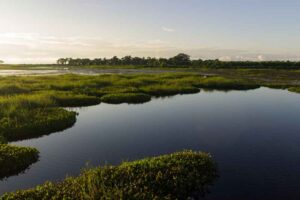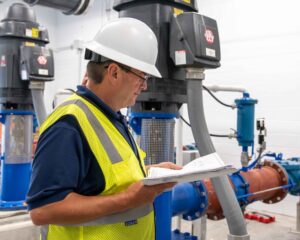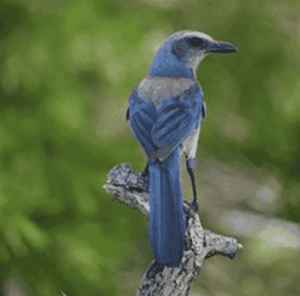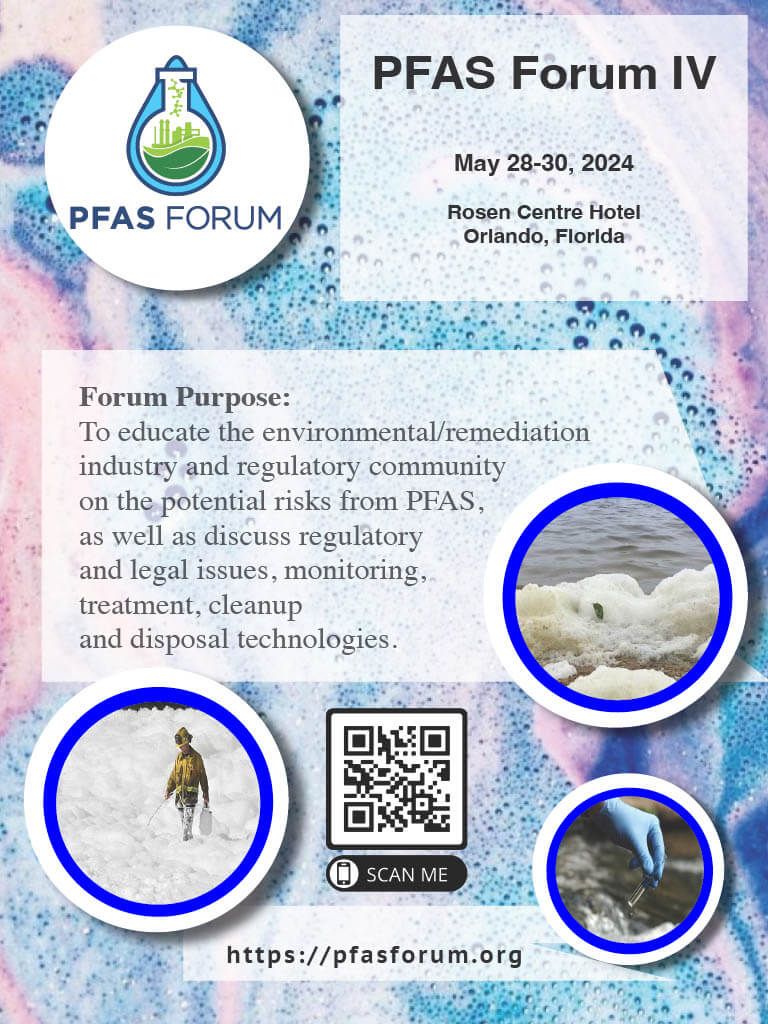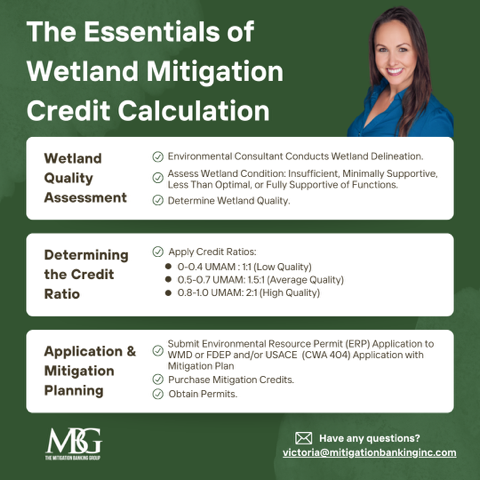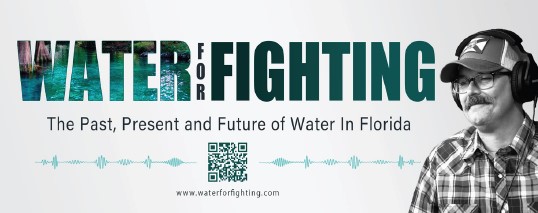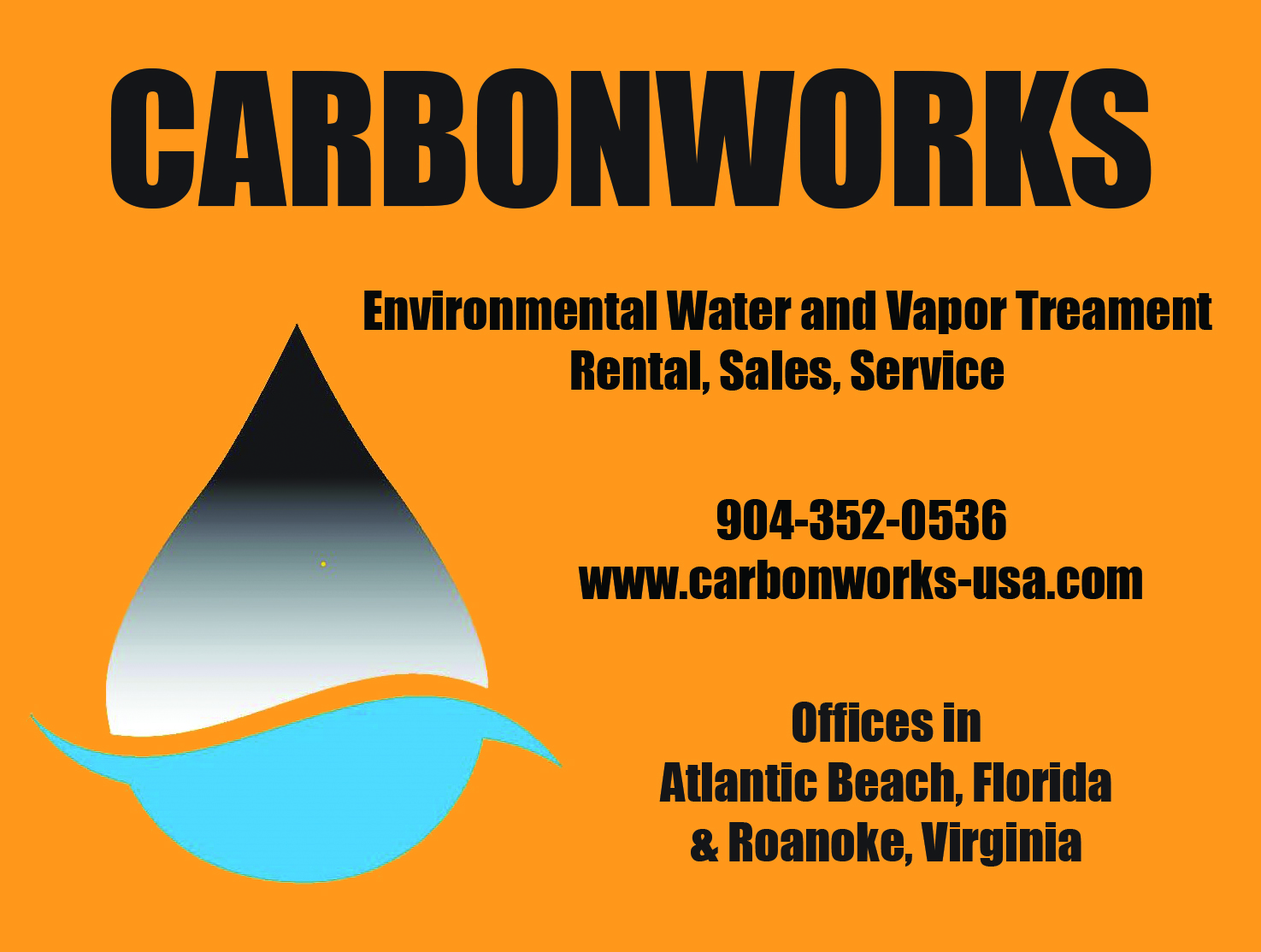
Statement by DEP Secretary Hamilton on Governor Ron DeSantis’ Focus on Florida’s Future Budget for Fiscal Year 2024-25
Focus on Florida’s Future Budget Continues This Administration’s Legacy for Environmental Protection with Investments in Everglades Restoration, Water Quality Protections, Vital Land Acquisitions and Resilience of Communities
On Dec. 5, Florida Department of Environmental Protection Secretary Shawn Hamilton issued the following statement regarding Governor Ron DeSantis’ submittal of his proposed Focus on Florida’s Future Budget for Fiscal Year 2024-25 to the Florida Legislature.
“From the first day of his administration, Governor DeSantis recognized that clean water is vital to our state and communities, and that we cannot afford to spend any more time simply talking about environmental protection but must take immediate action. His two Executive Orders, 19-12 and then 23-06, established a bold environmental agenda with major policy changes and record levels of funding. The proposed $3.4 billion in this budget ensures Florida remains committed to protecting our environment and way of life.
“The more than $1 billion in funding proposed to protect Florida’s precious water resources will expedite critical Everglades Restoration projects and bolster planning and infrastructure for water quality, quantity and supply projects. Most importantly, the commitment of continued funding for water quality improvement projects allows governments to pursue important projects to protect and preserve our natural ecosystems, knowing there is a strong and committed funding partner in the state.
“The $157 million proposed in this budget will ensure that Florida remains one of the most proactive states in the nation in addressing the resilience for both inland and coastal communities, ensuring that communities are prepared for the impacts of flooding and storm surge.
“Florida is also at the forefront of the nation’s land protection efforts and continues to be a model for other land acquisition programs across the country. This budget proposes $125 million to enable the state to continue conserving environmentally sensitive lands through the Florida Forever program and creating recreational opportunities for future generations.
“Governor DeSantis’ legacy of environmental protection through his decisive leadership and bold agenda has positioned Florida as a leader in environmental protection. Through this committed funding and coupled with legislative support, we will continue our momentum in protecting Florida together.”
Commissioner Wilton Simpson Announces Final Project Acquisition List for Rural and Family Lands Protection Program
On Nov. 20, Florida Commissioner of Agriculture Wilton Simpson announced the final project acquisition list for the Rural and Family Lands Protection Program following the program’s final public meeting which was held in Tallahassee to create a ranked list of agricultural lands eligible for protection.
“Today is an important milestone in our pursuit of preserving Florida’s productive agriculture lands. This final list represents hundreds of family farms that produce citrus, cattle, timber, and other vital commodities, and serve as buffers to our natural areas in the Wildlife Corridor,” said Commissioner Wilton Simpson. “I look forward to working with the Governor and Cabinet to receive final approval for this list and the Legislature to ensure these projects are fully funded.”
The final project acquisition list can be found on the department’s website.
RFLPP, which partners with farmers and ranchers through agricultural protection easements, aims to safeguard working agricultural operations that contribute to Florida’s economy and the production of food and fiber.
After securing $300 million in funding for the program as Senate President, Commissioner Wilton Simpson announced the opening of the 2023 application cycle for landowners to apply for the Rural and Family Lands Protection Program. A record number of landowners applied for the program. Prior to today’s final public meeting, the program hosted three public meetings across the state to receive input from the public on the RFLPP 2023 project application cycle.
For more information about Commissioner Simpson and the Florida Department of Agriculture and Consumer Services, visit FDACS.gov.
DEP Announces a Public Meeting for the Proposed Kingston Development’s State 404 Program Permit Application
The Florida Department of Environmental Protection (DEP) will hold a public meeting on Jan 16, 2024, to allow an opportunity for the public to provide input, ask questions and obtain information about the State 404 permit application for the proposed Kingston development in Lee County.
WHAT: Public Meeting – Kingston State 404 Permit Application
WHERE: East County Regional Library
881 Gunnery Road N
Lehigh Acres, FL 33971
WHEN: Jan. 16, 2024, 4 – 7 P.M. EST
For this development, the applicant, CAM7-Sub, LLC/Cameratta Companies, LLC, is seeking a State 404 Program Permit to discharge dredge or fill material into “waters of the United States” (WOTUS). The proposed project area encompasses 6,676 acres and would impact approximately 12.87 acres of wetlands deemed WOTUS. To offset impacts, the applicant will purchase wetland mitigation credits. Additionally, as part of this project, the applicant will create a conservation area over 3,250 acres and will perform wetland preservation and enhancement, including exotic vegetation removal and supplemental planting.
Public input is an important and valued component of all DEP permitting activities. The public comment period will conclude at the end of the public meeting. All public comments are reviewed and considered before taking agency action to approve or deny a permit.
DEP is committed to protecting Floridians and our state’s natural resources and ensuring the state’s environmental laws are followed. DEP will only issue permits that are protective of Florida’s environment and meet all requirements of state law.
The permit application and related application information (DEP File No. 423130) are available online.
Public participation is solicited without regard to race, color, religion, sex, pregnancy, national origin, age, handicap, or marital status. Persons who require special accommodations under the American with Disabilities Act (ADA) or persons who require translation services (free of charge) are asked to contact Stacie Taylor at 850-245-2118 or LEP@FloridaDEP.gov at least ten (10) days before the meeting. If you have a hearing or speech impairment, please contact the agency using the Florida Relay Service, 800-955-8771 (TDD) or 800-955-8770 (voice).
FWC TrophyCatch program ends Season 11 with a splash
The Florida Fish and Wildlife Conservation Commission’s (FWC) TrophyCatch program wrapped up a successful 11th year with two major events, awarding anglers with neat prizes including a brand-new bass boat! The TrophyCatch team awarded one lucky winner a Phoenix bass boat at the Bobby Lane High School Cup fishing tournament on Dec. 2. Five finalists randomly selected from TrophyCatch registrants participated in a reverse drawing that named youth angler Curtis Collins the winner of the boat package.
“Most of the fishing Curtis has done is from a pier or off our dock,” said the boat winner’s mother, Amy Collins. “So, it comes as no surprise that he has wanted a boat for a while. Several months ago, he decided he wanted to get his boating license. On Sunday he completed the boating license, but the even more interesting fact is that the very next day, Monday, we received word that Curtis was one of five finalists for the Trophy Catch boat!”
Curtis enjoyed a practice sit in the driver’s seat as the winner at the final drawing event. The boat package and giveaway are made possible by TrophyCatch conservation partners Phoenix Boats, powered by Mercury Marine, guided by Lowrance and anchored by Power-Pole Total Boat Control.
Another celebratory event, the TrophyCatch Hall of Fame Ceremony, was held at partner Bass Pro Shops’ Daytona location in November to celebrate the biggest catches of this past year. Eleven anglers who caught Hall of Fame bass weighing 13 pounds or more celebrated at the event and received a free replica mount of their giant catch. Program participant, Chad Dorland, was crowned as Hall of Fame Champion for the heaviest approved catch of the season, a 14-pound, 1-ounce bass from Orange Lake. Because TrophyCatch is a catch-and-release program, all catches celebrated still swim Florida’s waters waiting to be caught again. While prizing provides a fun incentive for anglers, the real payout of the program is the submitted trophy bass data that is helping guide FWC’s bass research and management. This data continues to yield surprising new insights about Florida’s most popular freshwater sport fish.
TrophyCatch is a largemouth bass conservation program designed to promote the responsible catch, documentation and release of trophy-size bass while rewarding anglers for their contributions to fisheries research and management. Your participation in TrophyCatch helps the FWC better understand and conserve Florida’s freshwater fisheries. For more information about the TrophyCatch program, email KP Clements at KP.Clements@MyFWC.com. For fishing information on Florida’s most popular waters see FWC’s Freshwater Fishing Forecasts.
North Florida Land Trust and its partners chosen for over $15 million in funding for the Corridor to Coast (C2C) Initiative
The funding, awarded by the Regional Conservation Partnership Program, will protect and improve ecological conditions in Northeast-Central Florida.
North Florida Land Trust and its partners have been awarded $15,243,902 by the United States Department of Agriculture’s National Resources Conservation Service (USDA’s NRCS) through its Regional Conservation Partnership Program (RCPP). The funding will support the Corridor to Coast (C2C) initiative that extends through the Northeast and Central Florida region to the east coast and includes a “critical linkage” within the Florida Wildlife Corridor and Ecological Greenways Network (FEGN), the Ocala to Osceola (O2O) wildlife corridor. The RCPP will support the conservation of working farms, forests and natural buffer lands that provide ecological benefits to the region.
The C2C is an extension of the O2O partnership led by NFLT and includes public and private organizations dedicated to landscape-scale conservation. The C2C is approximately 5,200,000 acres and covers portions of nine counties that include privately owned working lands and forests, freshwater wetlands, natural areas, pastures and public conservation lands. The RCPP will increase funding for land protection and restoration in Baker, Clay and Putnam counties. It also adds new funding opportunities in Nassau, Duval, St. Johns and Flagler counties. The RCPP will bring local, state and federal financial landowner assistance programs to private landowners for land management that protects natural resources and wildlife to further enhance regional conservation goals.
“Extending our conservation reach is so important right now because it is now or never,” said Allison DeFoor, president of NFLT. “This is the third time we have been awarded funding through the RCPP and we have been successful in improving the lands throughout the O2O. With this initiative now extending from the corridor to the coast, we can expand our work to protect natural spaces and resources and increase our ability to make a major difference for our future.”
Protecting and improving the land and these natural buffers have many ecological benefits as well as providing habitats for many wildlife species. It helps protect against flooding by providing storage and decreases the potential for soil erosion and pollution like fertilizers, insecticides, oil, grease and other human-made and natural pollutants that can enter water sources through runoff, drainage, seepage or precipitation. Preserving these water-abundant landscapes is critical for protecting the region from sea level rise, erosion and increased rainfall.
In addition to the ecological benefits, NFLT is also committed to promoting conservation activities that protect Camp Blanding from the threat of encroaching development. Camp Blanding is located in the heart of the C2C and NFLT partners with the military installation through the Army Compatible Use Buffer (ACUB) program which provides funding for the protection of land surrounding the Camp Blanding training center.
NFLT’s contributing partners in the RCPP include the Florida Department of Agriculture & Consumer Services (FDACS), Florida Department of Environmental Protection (FDEP), U.S. Department of Defense, U.S. Fish and Wildlife Service, Florida Fish and Wildlife Conservation Commission (FWC), Clay County, Putnam Land Conservancy (PLC), Florida Trail Association (FTA), Alachua Conservation Trust (ACT) and Trust for Public Land (TPL). The partners have also committed approximately $9.9 million to the C2C initiative.
This C2C initiative is one of 81 projects supported by the RCPP. More than $1 billion is being invested in projects throughout the country to support climate-smart agricultural practices. The program expands the reach of conservation efforts through public-private partnerships.
In Case You Missed It: Governor Ron DeSantis Awards Over $200 Million for Projects to Restore Florida’s Water Resources
On Dec. 19, Governor Ron DeSantis announced the award of $210 million through the Water Quality Improvement Grant Program for 27 statewide projects that will reduce harmful nutrients in Florida’s waterways. The awards include septic-to-sewer projects, wastewater treatment upgrades, stormwater projects, wastewater improvement projects and a regional agricultural project.
“It is important to protect and restore our waterways and to preserve the Florida way of life that has made us the Fishing and Boating Capital of the World,” said Governor Ron DeSantis. “These awards will help keep our waterways clean for residents and visitors to enjoy.”
These grants assist communities across the state with funding projects to improve and restore impaired waterbodies. The selected projects will reduce total nitrogen loading by more than 1 million cumulative pounds per year, which will help to reduce harmful algal blooms.
“Governor DeSantis has made our state’s water quality a top priority,” said Department of Environmental Protection Secretary Shawn Hamilton. “The state of Florida continues to provide communities with the means to tackle water quality improvement projects, with the goal of safeguarding and restoring our natural and water resources.”
On Dec. 5, 2023, Governor DeSantis announced his Focus on Florida’s Future budget proposal for Fiscal Year 2024-25, continuing the administration’s legacy of environmental protection. $1.1 billion is included to implement important projects that protect Florida’s water resources, including $135 million for the Water Quality Improvement Grant Program.
Since the former Wastewater Grant Program’s creation in 2020, the Department of Environmental Protection has awarded nearly $763 million for 135 projects to protect Florida’s water resources. Following the 2023 Legislative Session, Governor DeSantis signed House Bill 1379 which expanded the program to now include additional types of eligible projects – including upgrades and repairs to wastewater and stormwater infrastructure, septic-to-sewer conversions and projects to address agricultural nonpoint sources – as well as additional areas of the state that are now eligible for this program.
The commitment of recurring funding for water quality projects has allowed local governments to plan and proceed with important projects, knowing the state is a strong partner and committed to funding initiatives that protect the health and safety of Florida’s residents and visitors.
A list of all projects selected for funding for Fiscal Year 2023-24 can be found here.


